Search titles
Displaying results 11 to 20 of 38.

Between the Plough and the Pick »
Informal, artisanal and small-scale mining in the contemporary world
Edited by: Kuntala Lahiri-Dutt
Publication date: March 2018
Between the Plough and the Pick deepens our understanding of informal, artisanal and small-scale mining, popularly known as ASM. The book engages with wider scholarly conceptualisations of contemporary global social, agrarian and political changes, whilst underlining the roles that local social‑political-historical contexts play in shaping mineral extractive processes and practices. It shows that the people who are engaged in these mining practices are often the poorest and most exploited labourers—erstwhile peasants caught in the vortex of global change, who perform the most insecure and dangerous tasks. Although these people are located at the margins of mainstream economic life, they collectively produce enormous amounts of diverse material commodities and find a livelihood (and often a pathway out of oppressive poverty).
The contributions to this book bring these people to the forefront of debates on resource politics. The contributors are international scholars and practitioners who explore the complexities in the histories, in labour and production practices, the forces driving such mining, the creative agency and capacities of these miners, as well as the human and environmental costs of ASM. They show how these informal, artisanal and small‑scale miners are inextricably engaged with, or bound to, global commodity values, are intimately involved in the production of new extractive territories and rural economies, and how their labour reshapes agrarian communities and landscapes of resource access and control.
This book drives home the understanding that, collectively, this social and economic milieu redefines our conceptualisation of resource politics, mineral‑dependent livelihoods, extractive geographies of resources and commodities, and their multiple meanings.
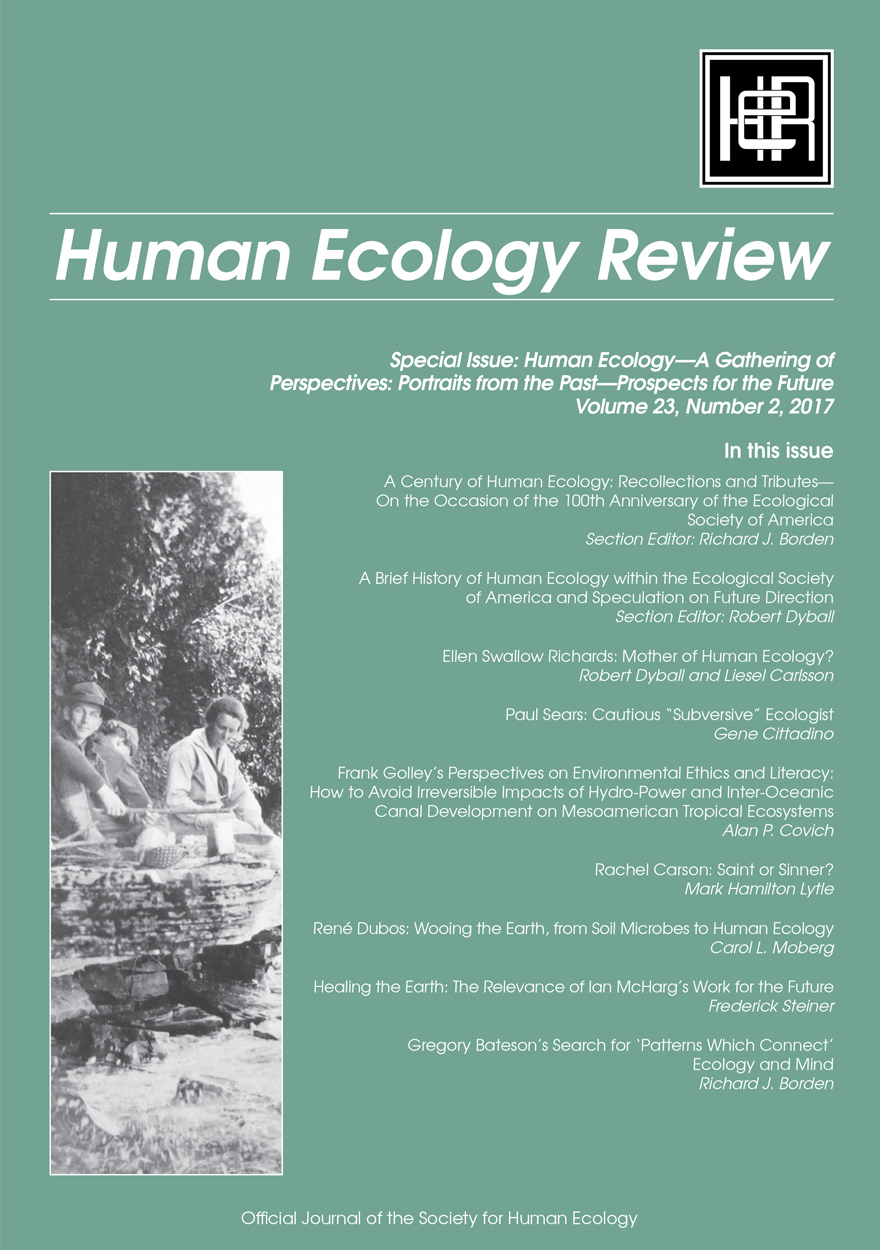
Human Ecology Review: Volume 23, Number 2 »
Special Issue: Human Ecology—A Gathering of Perspectives: Portraits from the Past—Prospects for the Future
Publication date: December 2017
Human Ecology Review is a semi-annual journal that publishes peer-reviewed interdisciplinary research on all aspects of human–environment interactions (Research in Human Ecology). The journal also publishes essays, discussion papers, dialogue, and commentary on special topics relevant to human ecology (Human Ecology Forum), book reviews (Contemporary Human Ecology), and letters, announcements, and other items of interest (Human Ecology Bulletin). Human Ecology Review also publishes an occasional paper series in the Philosophy of Human Ecology and Social–Environmental Sustainability.
Download for free
Not available for purchase

Multi-level Governance »
Conceptual challenges and case studies from Australia
Edited by: Katherine A. Daniell, Adrian Kay
Publication date: November 2017
Important policy problems rarely fit neatly within existing territorial boundaries. More difficult still, individual governments or government departments rarely enjoy the power, resources and governance structures required to respond effectively to policy challenges under their responsibility. These dilemmas impose the requirement to work with others from the public, private, non-governmental organisation (NGO) or community spheres, and across a range of administrative levels and sectors. But how? This book investigates the challenges—both conceptual and practical—of multi-level governance processes. It draws on a range of cases from Australian public policy, with comparisons to multi-level governance systems abroad, to understand factors behind the effective coordination and management of multi-level governance processes in different policy areas over the short and longer term. Issues such as accountability, politics and cultures of governance are investigated through policy areas including social, environmental and spatial planning policy.
The authors of the volume are a range of academics and past public servants from different jurisdictions, which allows previously hidden stories and processes of multi-level governance in Australia across different periods of government to be revealed and analysed for the first time.
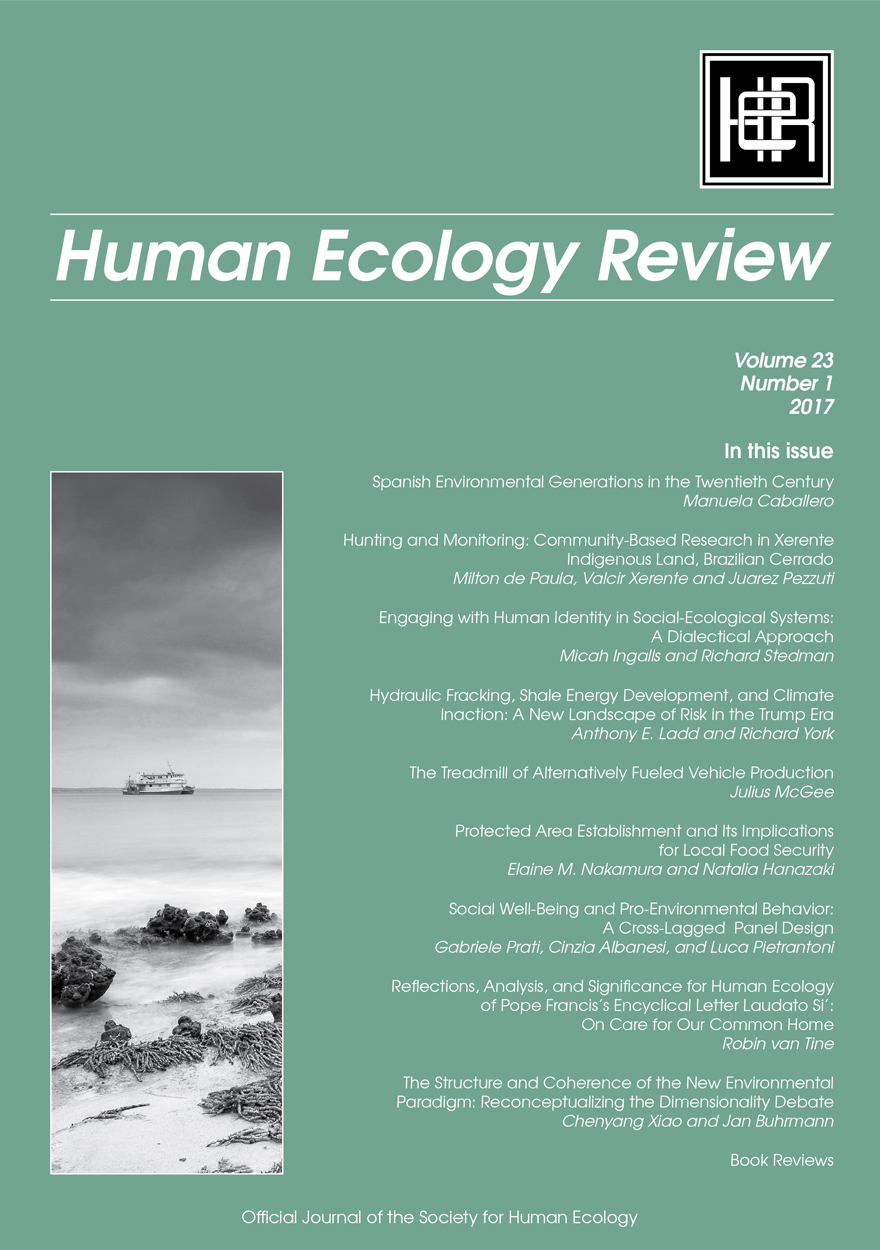
Human Ecology Review: Volume 23, Number 1 »
Publication date: September 2017
Human Ecology Review is a semi-annual journal that publishes peer-reviewed interdisciplinary research on all aspects of human–environment interactions (Research in Human Ecology). The journal also publishes essays, discussion papers, dialogue, and commentary on special topics relevant to human ecology (Human Ecology Forum), book reviews (Contemporary Human Ecology), and letters, announcements, and other items of interest (Human Ecology Bulletin). Human Ecology Review also publishes an occasional paper series in the Philosophy of Human Ecology and Social–Environmental Sustainability.
Download for free
Not available for purchase

Ten Thousand Years of Cultivation at Kuk Swamp in the Highlands of Papua New Guinea »
Publication date: July 2017
Kuk is a settlement at c. 1600 m altitude in the upper Wahgi Valley of the Western Highlands Province of Papua New Guinea, near Mount Hagen, the provincial capital. The site forms part of the highland spine that runs for more than 2500 km from the western head of the island of New Guinea to the end of its eastern tail. Until the early 1930s, when the region was first explored by European outsiders, it was thought to be a single, uninhabited mountain chain. Instead, it was found to be a complex area of valleys and basins inhabited by large populations of people and pigs, supported by the intensive cultivation of the tropical American sweet potato on the slopes above swampy valley bottoms.
With the end of World War II, the area, with others, became a focus for the development of coffee and tea plantations, of which the establishment of Kuk Research Station was a result. Large-scale drainage of the swamps produced abundant evidence in the form of stone axes and preserved wooden digging sticks and spades for their past use in cultivation. Investigations in 1966 at a tea plantation in the upper Wahgi Valley by a small team from The Australian National University yielded a date of over 2000 years ago for a wooden stick collected from the bottom of a prehistoric ditch.
The establishment of Kuk Research Station a few kilometres away shortly afterwards provided an ideal opportunity for a research project.
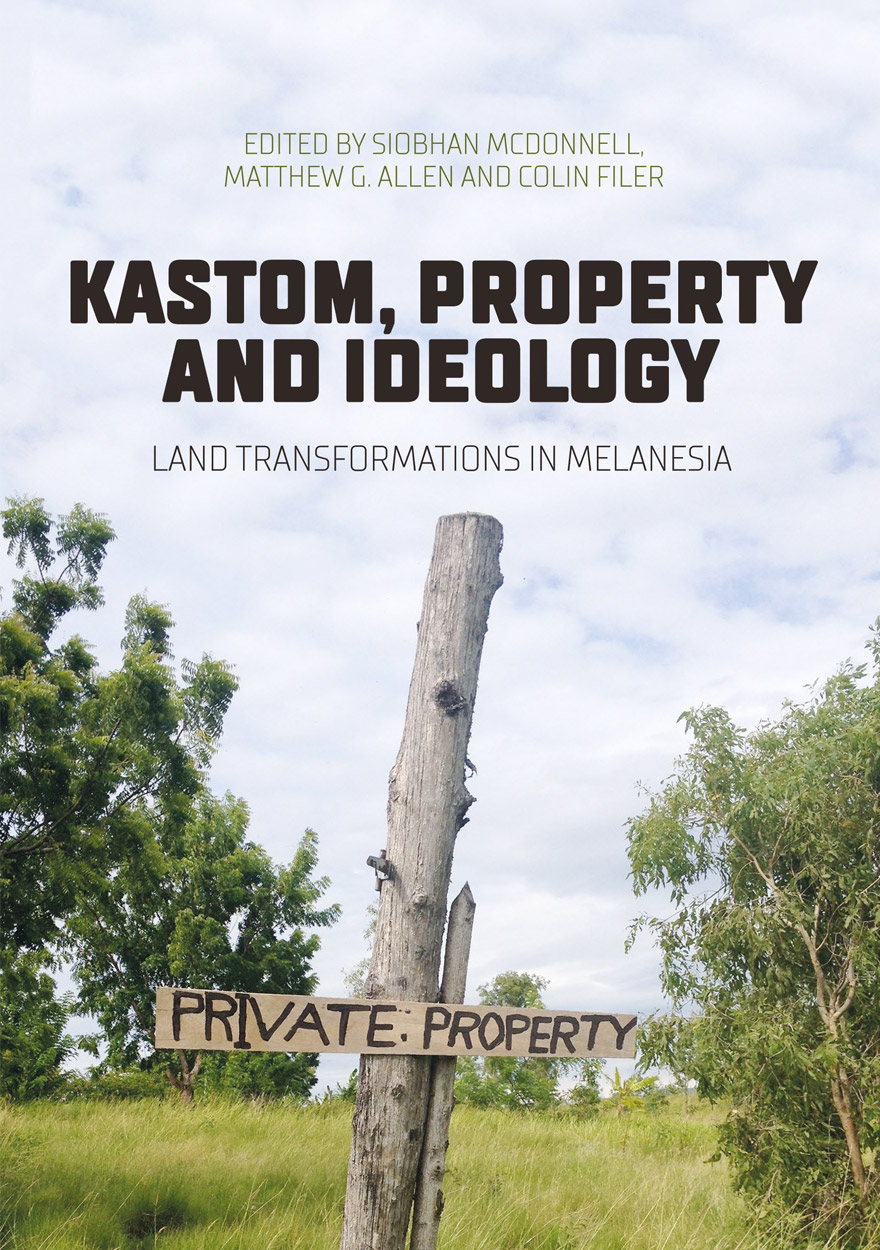
Kastom, property and ideology »
Land transformations in Melanesia
Publication date: March 2017
The relationship between customary land tenure and ‘modern’ forms of landed property has been a major political issue in the ‘Spearhead’ states of Melanesia since the late colonial period, and is even more pressing today, as the region is subject to its own version of what is described in the international literature as a new ‘land rush’ or ‘land grab’ in developing countries. This volume aims to test the application of one particular theoretical framework to the Melanesian version of this phenomenon, which is the framework put forward by Derek Hall, Philip Hirsch and Tania Murray Li in their 2011 book, Powers of Exclusion: Land Dilemmas in Southeast Asia. Since that framework emerged from studies of the agrarian transition in Southeast Asia, the key question addressed in this volume is whether ‘land transformations’ in Melanesia are proceeding in a similar direction, or whether they take a somewhat different form because of the particular nature of Melanesian political economies or social institutions. The contributors to this volume all deal with this question from the point of view of their own direct engagement with different aspects of the land policy process in particular countries. Aside from discussion of the agrarian transition in Melanesia, particular attention is also paid to the growing problem of land access in urban areas and the gendered nature of landed property relations in this region.
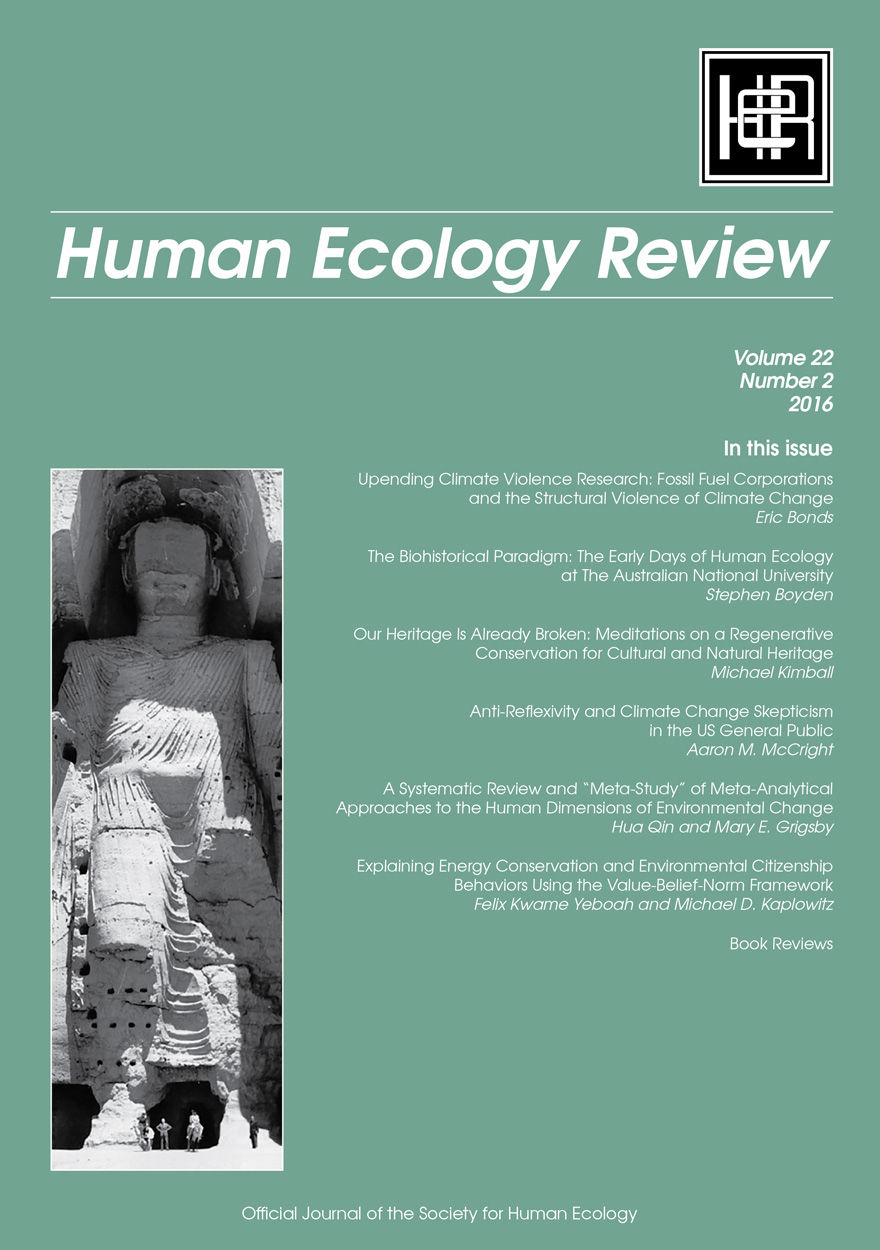
Human Ecology Review: Volume 22, Number 2 »
Publication date: July 2016
Human Ecology Review is a semi-annual journal that publishes peer-reviewed interdisciplinary research on all aspects of human–environment interactions (Research in Human Ecology). The journal also publishes essays, discussion papers, dialogue, and commentary on special topics relevant to human ecology (Human Ecology Forum), book reviews (Contemporary Human Ecology), and letters, announcements, and other items of interest (Human Ecology Bulletin). Human Ecology Review also publishes an occasional paper series in the Philosophy of Human Ecology and Social–Environmental Sustainability.
Download for free
Not available for purchase
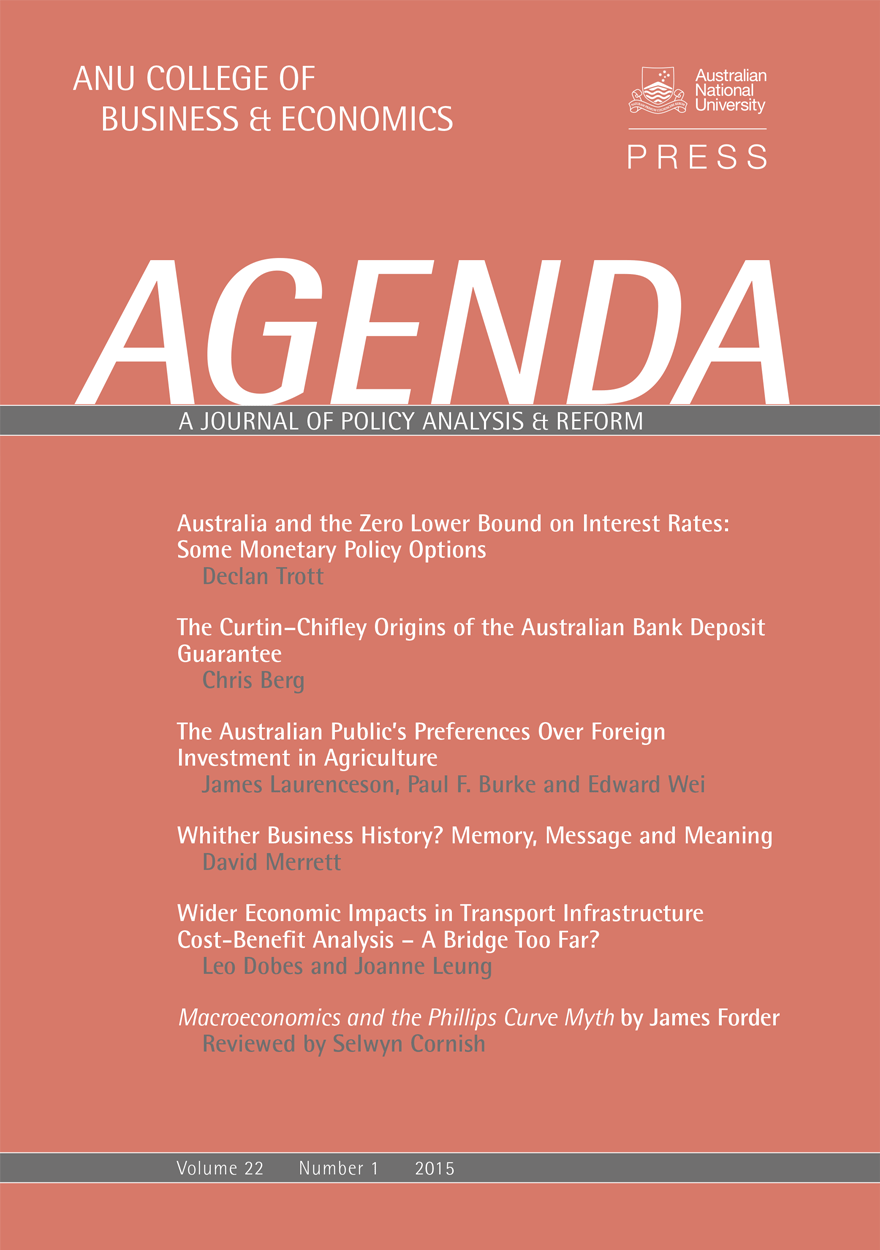
Agenda - A Journal of Policy Analysis and Reform: Volume 22, Number 1, 2015 »
Edited by: William Coleman
Publication date: December 2015
Agenda is a refereed, ECONLIT-indexed and RePEc-listed journal of the College of Business and Economics, The Australian National University. Launched in 1994, Agenda provides a forum for debate on public policy, mainly (but not exclusively) in Australia and New Zealand. It deals largely with economic issues but gives space to social and legal policy and also to the moral and philosophical foundations and implications of policy.
Subscribe to the Agenda Alerting service if you wish to be advised on forthcoming or new issues.
Download for free
Not available for purchase
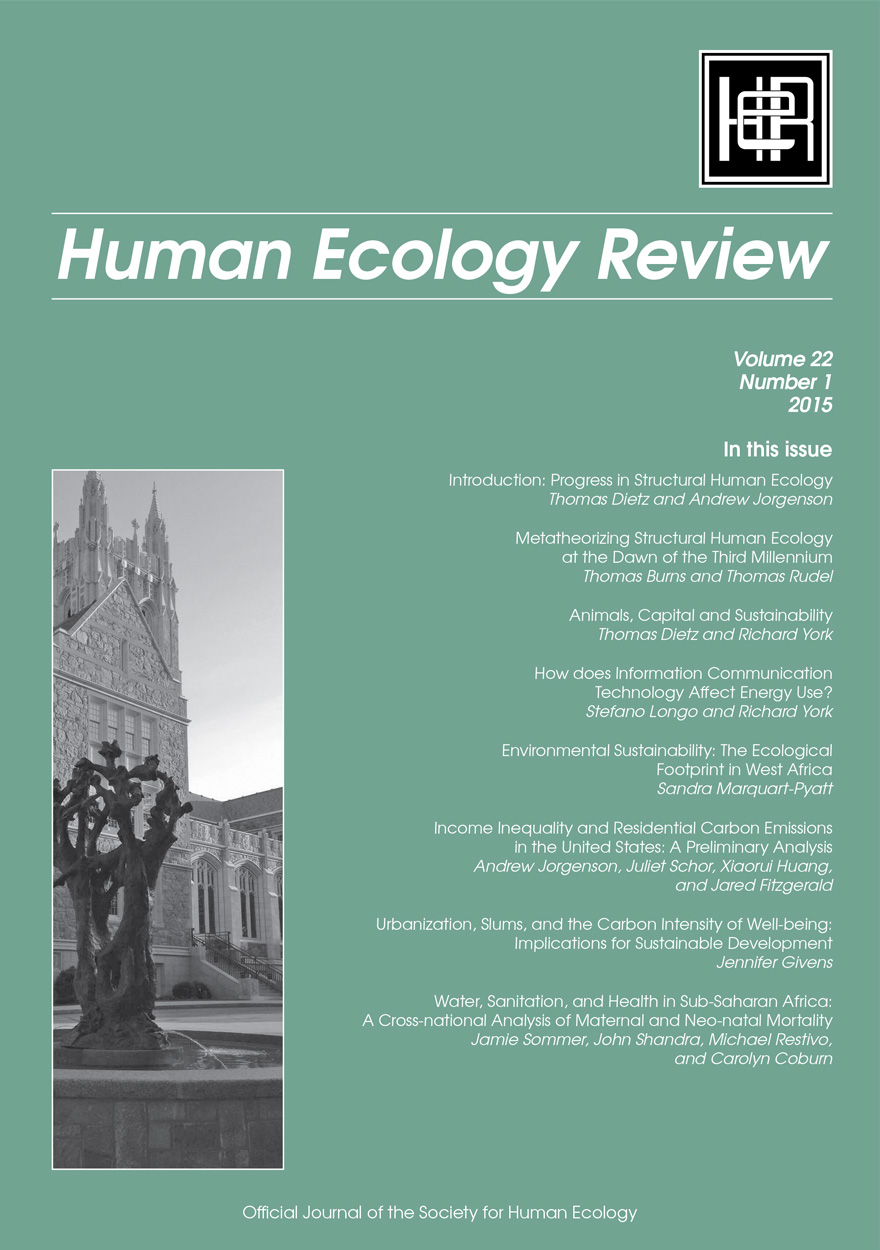
Human Ecology Review: Volume 22, Number 1 »
Publication date: December 2015
Human Ecology Review is a semi-annual journal that publishes peer-reviewed interdisciplinary research on all aspects of human–environment interactions (Research in Human Ecology). The journal also publishes essays, discussion papers, dialogue, and commentary on special topics relevant to human ecology (Human Ecology Forum), book reviews (Contemporary Human Ecology), and letters, announcements, and other items of interest (Human Ecology Bulletin). Human Ecology Review also publishes an occasional paper series in the Philosophy of Human Ecology and Social–Environmental Sustainability.
Download for free
Not available for purchase
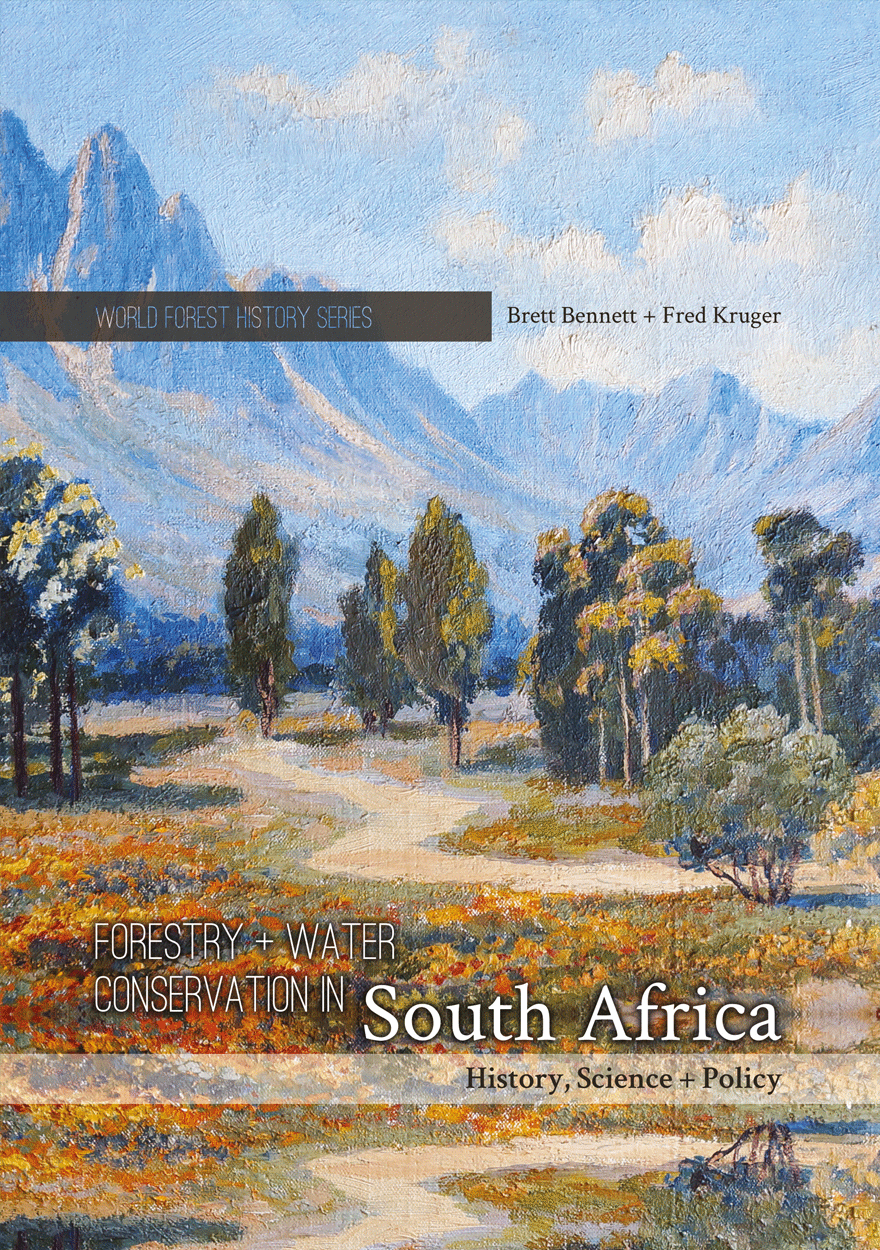
Forestry and Water Conservation in South Africa »
History, Science and Policy
Authored by: Brett Bennett, Fred Kruger
Publication date: November 2015
This innovative interdisciplinary study focuses on the history, science, and policy of tree planting and water conservation in South Africa. South Africa’s forestry sector has sat—often controversially—at the crossroads of policy and scientific debates regarding water conservation, economic development, and biodiversity protection. Bennett and Kruger show how debates about the hydrological impact of exotic tree planting in South Africa shaped the development of modern scientific ideas and state policies relating to timber plantations, water conservation, invasive species control, and biodiversity management within South Africa as well as elsewhere in the world. Forestry and Water Conservation in South Africa shows how scientific research on the impact of exotic and native vegetation led to the development of a comprehensive national policy for conserving water, producing timber, and protecting indigenous species from invasive alien plants. Policies and laws relating to forests and water began to change in the late 1980s and early 1990s as a result of political and administrative changes within South Africa. This book suggests that the country’s contemporary policies towards timber plantations, guided by the National Water Act of 1998, need to be reconsidered in light of the authors’ findings. Bennett and Kruger also call for more interdisciplinary research and greater emphasis on integrated policies and management plans for forestry, invasive alien plants, water conservation, and biodiversity preservation.



